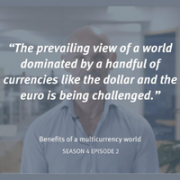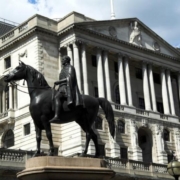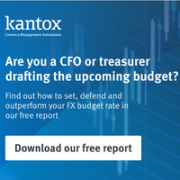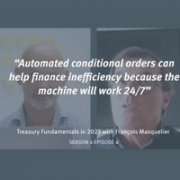The treasurer plays with fire, when hedging foreign currencies to his sole gut feelings
| 24-11-2017 | Rob Beemster |

The foreign exchange market is a highly volatile market and therefore full of surprises. For more than 20 years, I was a spot currency trader in the dealing room of a large international bank. One of the things I liked the most in being a trader was the unpredictability of the markets. Never a dull moment. The management of the bank gave us a lot of freedom, once you had proven the ability to handle this. But always we had to take care of some very important requirements, like the VAR (Value At Risk), and we had to protect our positions with stop-loss orders.
Executing a stop-loss was the worst part of my job. It proved that you had been wrong in judging a certain move of a currency. It sometimes felt like being a loser. However, executing at a stop-loss level gives you the freedom to restart a new currency position. We were never blamed by colleagues or the management for having executed a stop-loss. It was part of the risks, and by using a stop everyone knew that overall business would never be hurt. If losses taken by stops were in line with the profits taken (relatively speaking) everything would be fine, considering that a good trader makes more positive decisions then negative ones.
Now let’s consider the controller who decides on his hedges, based on his gut feelings. Most probably this is based on old nonsensical ideas like, “what goes up must go down”, and, “It will come back to old levels”. Because of my business today, I speak with finance managers about their hedging strategies. Sometimes they make me feel embarrassed because of their self-created strategies; “I like to play foreign currency strategy myself”, or; “we have had good years and less good years”. From a business economic point of view this can be very painful. Volatility in foreign currencies is a very important component of international business. But one has to realize that this component can be managed. Companies should install a risk management procedure on their foreign currency exposure/obligations, to preserve their profit margins. A proper strategy not only protects the margins and cash flow but will also create prudency within the entire company.
A currency strategy is an implemented structure, necessary for the finance department. However, others that are responsible for the flows, like sales departments, procurement or production, should be involved and be aware of the importance of the strategy as well. Our models do describe the tasks of all the departments. A communication plan is part of the currency strategy. When the implemented processes are understood by everyone within the company, then and only then the strategy will work.
Our foreign currency risk models are very useful within international operating corporations. We can help you to implement the processes that will secure cash flows. A controller, who makes decisions on FX out of the blue, is unacceptable and too dangerous for the continuity of the business, moreover, it is intolerable in modern finance departments.
Barcelona valuta experts can be of assistance to you. After precise research of the current status of your company we can implement the right models. And this will protect you against negative or unwelcome currency moves.

Owner of Barcelona valuta experts BV











